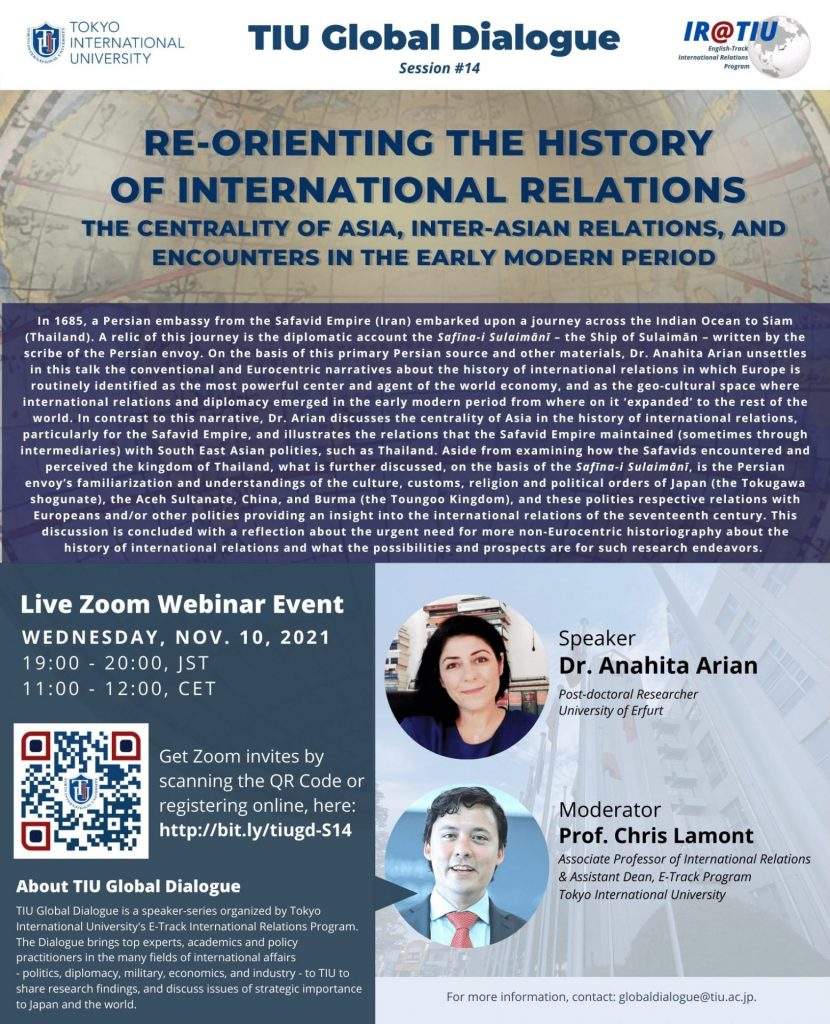In 1685, a Persian embassy from the Safavid Empire (Iran) embarked upon a journey across the Indian Ocean to Siam (Thailand). A relic of this journey is the diplomatic account the Safīna-i Sulaimānī – the Ship of Sulaimān – written by the scribe of the Persian envoy. On the basis of this primary Persian source and other materials, Dr. Anahita Arian unsettles in this talk the conventional and Eurocentric narratives about the history of international relations in which Europe is routinely identified as the most powerful center and agent of the world economy, and as the geo-cultural space where international relations and diplomacy emerged in the early modern period from where on it ‘expanded’ to the rest of the world. In contrast to this narrative, Dr. Arian discusses the centrality of Asia in the history of international relations, particularly for the Safavid Empire, and illustrates the relations that the Safavid Empire maintained (sometimes through intermediaries) with South East Asian polities, such as Thailand. Aside from examining how the Safavids encountered and perceived the kingdom of Thailand, what is further discussed, on the basis of the Safīna-i Sulaimānī, is the Persian envoy’s familiarization and understandings of the culture, customs, religion and political orders of Japan (the Tokugawa shogunate), the Aceh Sultanate, China, and Burma (the Toungoo Kingdom), and these polities respective relations with Europeans and/or other polities providing an insight into the international relations of the seventeenth century. This discussion is concluded with a reflection about the urgent need for more non-Eurocentric historiography about the history of international relations and what the possibilities and prospects are for such research endeavors.
TIU Global Dialogue 14: Re-Orienting the History of International Relations
Start Date: November 10 (Wed), 2021
Start Time: 7:00 PM (JST)
Location: Online (Zoom)
Hosted By: TIU Global Dialogue
This event has ended

